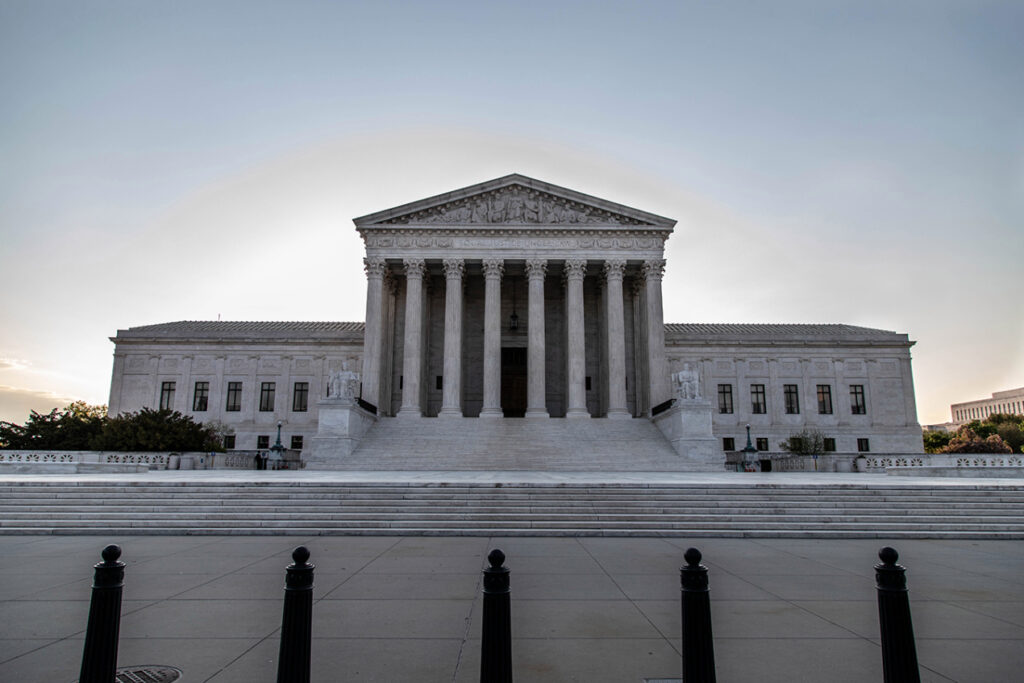Supreme Court Declines to Overturn ACA — Again
4 min read
The Supreme Court on Thursday turned back its third chance to upend the Affordable Care Act, rejecting a lawsuit filed by a group of Republican state attorneys general claiming that a change made by Congress in 2017 had rendered the entire law unconstitutional.
By a vote of 7-2, however, the justices did not even reach the merits of the case, ruling instead that the suing states and the individual plaintiffs, two self-employed Texans, lacked “standing” to bring the case to court.
“We proceed no further than standing,” wrote Justice Stephen Breyer for the majority. “Neither the individual nor the state plaintiffs have shown that the injury they will suffer or have suffered is ‘fairly traceable’ to the ‘allegedly unlawful conduct’ of which they complain.”
The two dissenters in the case, Justices Samuel Alito and Neil Gorsuch, disagreed. “The States have clearly shown that they suffer concrete and particularized financial injuries that are traceable to conduct of the Federal Government,” Alito wrote. “The ACA saddles them with expensive and burdensome obligations, and those obligations are enforced by the Federal Government. That is sufficient to establish standing.”
The ruling represented a win not only for backers of the health law in general, but also for Health and Human Services Secretary Xavier Becerra. As California attorney general, Becerra led the Democratic states defending the ACA after the Trump administration sided with the Republican states’ suit.
It was the third time in nine years the court has been offered the opportunity to effectively end the health law — and the third time it has refused.
Democrats lauded the decision. President Joe Biden tweeted that the decision is “a big win for the American people.” Becerra, who helped write the law as a member of Congress and now is responsible for implementing it, said the decision “means that all Americans continue to have a right to access affordable care, free of discrimination. More than 133 million people with preexisting conditions, like cancer, asthma or diabetes, can have peace of mind knowing that the health protections they rely on are safe.”
Democratic leaders in Congress said after the ruling that they plan to move ahead with efforts to expand the law — something Republicans are wary of.
“The Supreme Court’s ruling doesn’t change the reality that America’s health care system needs to be modernized to better serve patients,” said Rep. Cathy McMorris Rodgers (R-Wash.). “Instead of lurching toward socialized medicine, we should be working together to modernize our health care system with solutions like price transparency, lowering drug costs without government price control schemes, removing bureaucratic red tape and spurring more private investment for breakthrough cures and treatments.”
The case, California v. Texas, arose as a result of a provision of the tax-cut bill passed by the Republican-controlled Congress in 2017. As part of that bill, Congress reduced to zero the ACA’s penalty for not having health insurance. The requirement for coverage, often referred to as an individual mandate, was inserted into the law to give insurers a wide pool of customers since they were now required to cover people with medical conditions. Republicans have long assailed the provision as an overreach by government.
The Republican state attorneys general argued in their suit that it was only the existence of that penalty — which the justices considered a tax — that allowed the high court to rule the law constitutional in 2012. Without the tax, the Republicans argued, not only is the mandate to have coverage unconstitutional, but the rest of the law must fall, too.
At oral arguments in the case last November, several of the conservative justices made clear they were not buying what the Republicans were selling.
On the standing issue, Chief Justice John Roberts asked whether someone would be able to sue to overturn a law requiring homeowners to mow their lawns — even if that law had no penalty. His clear suggestion was that such a person would have no case.
At issue also was the question of whether the rest of the law could stand if the justices believed that those bringing the case did have standing and if the requirement to have health insurance was unconstitutional. Even some of the court’s most conservative members, including Justice Brett Kavanaugh, suggested Congress did not intend for the rest of the law to fall if the individual mandate were declared unconstitutional.
In the end, only Justices Alito and Gorsuch suggested they agreed with the basis for the suit. “Today’s decision is the third installment in our epic Affordable Care Act trilogy, and it follows the same pattern as installments one and two,” Alito wrote. “In all three episodes, with the Affordable Care Act facing a serious threat, the Court has pulled off an improbable rescue.”
The law, enacted in 2010, has provided coverage for about 31 million Americans. But hundreds of millions more have had their health care and coverage affected by provisions as wide-ranging as changes in Medicare drug copayments, requirements for calorie counts on menus, a pathway for approval of generic copies of expensive biologic drugs and, perhaps most important politically, protections for people with preexisting conditions and a ban on lifetime caps on coverage.
The Trump administration took several positions on the case. At one point it asserted that eliminating the tax required the entire law to be declared void and at another time suggested that the health law could be invalided only in the Republican-controlled states involved in the suit.
Before the death of Justice Ruth Bader Ginsburg last September, most court observers thought the case was highly unlikely to result in the entire ACA being struck down. That’s because Roberts voted to uphold the law in 2012, and again when it was challenged in a less sweeping way in 2015. But conservative jurist Amy Coney Barrett replaced Ginsburg, and a majority to sustain the law was considered less secure.
This article was originally posted on Supreme Court Declines to Overturn ACA — Again







